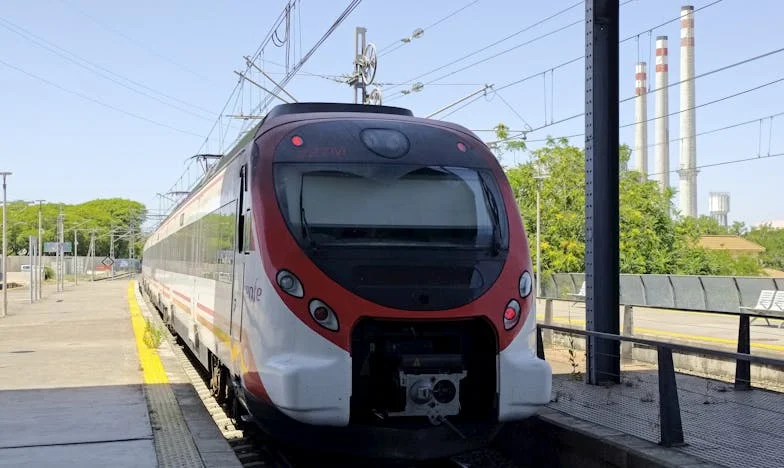There Won’t Be a Wedding—But There Will Be a Celebration
“You can’t just throw away your future, Katie! That’s not what your father would want!”
My mother’s voice echoed through the cramped kitchen, punctuated by the hiss of the kettle. Her hands were trembling as she clutched her mug, eyes red from too many sleepless nights. Dad’s wheelchair creaked in the hallway, a constant, metallic reminder of how everything had changed in a single moment.
I blinked back tears, staring at the acceptance letter from the University of Michigan. “Then what am I supposed to do, Mom? Leave you alone to take care of Dad?”
The accident happened on a Tuesday. I remember the call—how the world seemed to tilt and freeze at once. Dad had been driving home from his job at the plant, just outside our town of Mason, Michigan. The roads were slick with rain, and a delivery truck ran a red light. Now, three months later, our living room smelled like antiseptic instead of cinnamon candles, and Dad’s laugh had been replaced with a tight, painful smile.
I’d graduated teacher’s college with distinction, the first Williams to even finish college. My guidance counselor, Mrs. Jenkins, hugged me so tight at graduation, whispering, “The world needs more people like you, Katie.” I wanted to believe her. I wanted to believe that the world needed me, that my dreams mattered.
But the world doesn’t stop for dreams. Not when your father can’t walk anymore. Not when your mom has to take unpaid leave to spoon-feed him oatmeal and help him learn how to use the wheelchair. Not when your little brother, Tyler, starts skipping school because he’s scared to come home to the new reality and can’t find words for his anger.
That night, after another argument, I curled up in my room, clutching my pillow, listening to the sound of rain tapping on the window. My phone buzzed—Emma, my best friend since kindergarten, sent a text.
—You okay? Want to talk?
I stared at her words, thumb hovering. I wanted to tell her everything—that I felt like I was drowning, that the choice between my family and my future was tearing me apart. Instead, I sent a quick, “Yeah, just tired.”
The next morning, I woke up to the smell of burning toast and Dad’s quiet cursing from the kitchen. He was trying to make breakfast on his own. I rushed in, heart pounding, and grabbed the pan before the smoke alarm could join the chaos.
“Sorry, Katie-bug,” he said, his eyes watery with frustration. “Just wanted to feel useful.”
“I know, Dad. It’s okay.”
But it wasn’t. None of it was okay. The house felt smaller, the walls pressing in as the bills stacked up, as friends stopped visiting because they didn’t know what to say. Even Emma came by less and less, her invitations to bonfires and late-night drives trailing off when she saw the look on my face.
College orientation day arrived. I watched the clock, each minute ticking toward the time I was supposed to board the bus, suitcase packed and dreams in tow. Mom lingered in the doorway, her face drawn and pale.
“You should go, Katie. We’ll find a way.”
But I saw the lie in her eyes. She was exhausted. Tyler was acting out. Dad was still learning how to be someone new, someone broken. I couldn’t leave them. Not now.
So I stayed. I found a job at the local grocery store, stocking shelves at night and tutoring kids in the afternoons. The university sent emails, then letters, then stopped writing altogether.
Some nights, I’d sit on the porch steps and watch the stars, wondering if somewhere in Ann Arbor, there was a girl who looked like me, who felt as lost, who still believed in happy endings.
A year passed. Dad grew stronger, learning to maneuver the wheelchair with pride. Mom returned to work, though the lines on her face deepened. Tyler started going to therapy, and slowly, the anger faded. But I felt invisible, my ambitions shrinking as the world moved on without me.
One Sunday, during dinner, Dad looked at me and said, “Katie, you know we’re okay now. You gave up so much for us. Don’t let that be the end of your story.”
Tears pricked my eyes, and for the first time, I let myself hope. Maybe it wasn’t too late.
That week, Emma appeared at my door, a thick envelope in her hand. “Michigan’s accepting late transfers,” she said, eyes bright. “I made some calls. Mrs. Jenkins helped.”
I stared at her, the weight of gratitude and guilt crashing over me. Could I really leave? Was I still the girl who believed in herself?
The family gathered in the living room, the air thick with anticipation. Mom squeezed my hand. “We’ll figure it out, Katie. You have to go.”
Dad grinned. “Don’t worry about us. We’ll throw you a going-away party. Heck, we’ll call it a wedding if that’s what it takes to make you chase your dreams.”
There wouldn’t be a wedding, but there would be a celebration. My own, for finally choosing myself, for believing that I could still build a future—even if it looked different now.
Now, as I board the bus for Ann Arbor, suitcase in hand, I can’t help but look back at the faces pressed to the window—my family, my past, my heart. I wonder: How do you forgive yourself for putting your own dreams first? And is it ever too late to start living for yourself?
